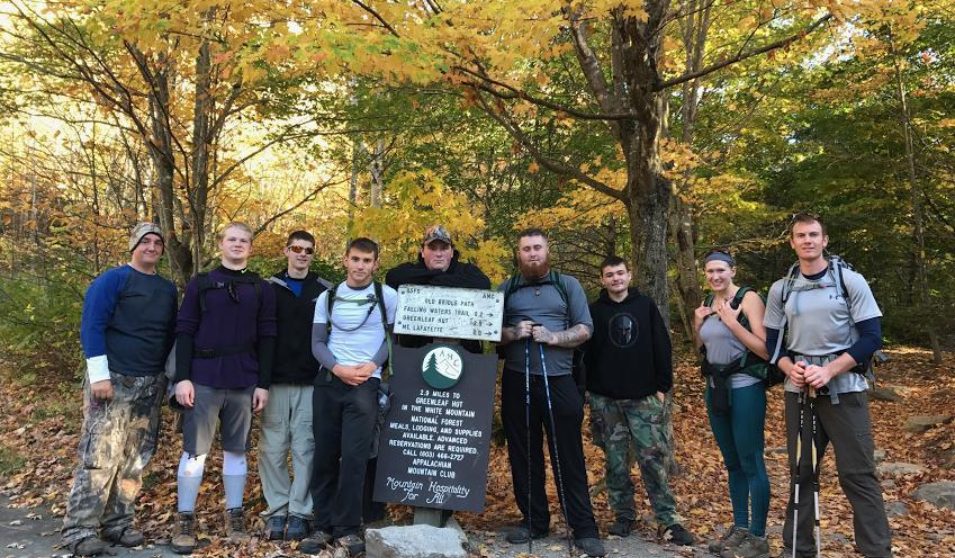Place-based education gives meaning to learning and strengthens the bonds between school and community. Please take a moment to read this piece by our New England hub contact, Dr. Linda Carrier, Assistant Professor of Educational Leadership at Plymouth State University, coordinator of the Curriculum Administrator and Superintendent licensure programs, and facilitator for the Rural Educational Leaders Network.
As adults, we frequently consider the value of place. Where do we live? Where do we work? Where do our children go to school? As children, we learned a variety of skills from the places where we grew up, skills that we each draw from as adults. Where is important to us. It provides a great deal of information about what we can expect, what will be expected of us, what we need to know and be able to do; it helps us to feel connected as a community. The same can be said about the curriculum of the schools our children attend. Where a school is located can provide unique and rich learning opportunities that are uniquely available to that school. In rural New Hampshire that means students are able to experience learning opportunities that incorporate the amazing environment we live in, community values, historical, and cultural resources.
The Rural Educational Leaders Network (RELN) at Plymouth State University is a New Hampshire based professional development network dedicated to the professional growth of educational leaders in our rural areas. As a network, we strongly believe that schools are the economic drivers of communities and that the partnership between schools and communities is critical to improving declining economies and ensuring the success of every child. Together, and in partnership with community and business leaders, we explore the relationship between the issues faced by our communities and the school. As a network we place a high value on the practice of place-based education, or the integration of the community outside of schools into the curriculum as a means of supporting students becoming active citizens in their communities and developing their own sense of why where is important to them.
Through place-based educational opportunities, students become immersed in local history, culture, environment, and economy. These opportunities enhance the classroom experience and provide exciting opportunities for learning language arts, mathematics, science, social studies, and other subjects. Students also develop the thinking skills they will need to become contributing members of our communities. There are powerful examples of place-based education throughout New Hampshire’s rural schools. Programs like Gorham High School's Maker Space provide students with an opportunity to identify and develop solutions for community-based issues while also developing their knowledge of mathematics, science, technology, and language arts. Lancaster Elementary's Green House program is providing learning opportunities in science, math, and technology while students work to solve the issue of developing a sustainable food source for the region. Groveton High School's Off the Grid program allows students to develop science, math, and problem solving skills as they learn how to live off the grid in rural New Hampshire.
Opportunities for place-based education happen outside of the formal school day as well and serve to develop students’ understanding of the cultural beauty of our communities. Wentworth Elementary's Game Night provides the school and community an opportunity to come together to learn about the town’s hunting and fishing culture. Together they share a meal, provided by community members, and prepared from game harvested by their community.
Through the use of place-based education New Hampshire’s rural schools are able to provide highly engaging and meaningful learning experiences for students which help them to meet the demands of curriculum standards and develop a strong sense of why where is important to them in their life. Through the partnership of schools with communities, strong place-based educational programming can develop, and through strong place-based education, our children are supported in developing deep and meaningful connections to our communities. Those connections can provide solutions to community issues and positively influence our economies. Contact your local school to learn more about how you can help your school’s principal develop partnerships that support place-based education in your community.
This post originally appeared on the Rural Educational Leaders Network blog. RELN is our New England hub partner. RELN works to develop and support a professional network for New Hampshire’s Rural School and District leaders. They serve as a professional network to develop partnerships between schools and communities that not only provide rich educational opportunities for students but benefit the economic future of our rural areas.
Find out more about our New England Hub, the Rural Educational Leaders Network, and the author of this piece, Dr. Linda Carrier.




